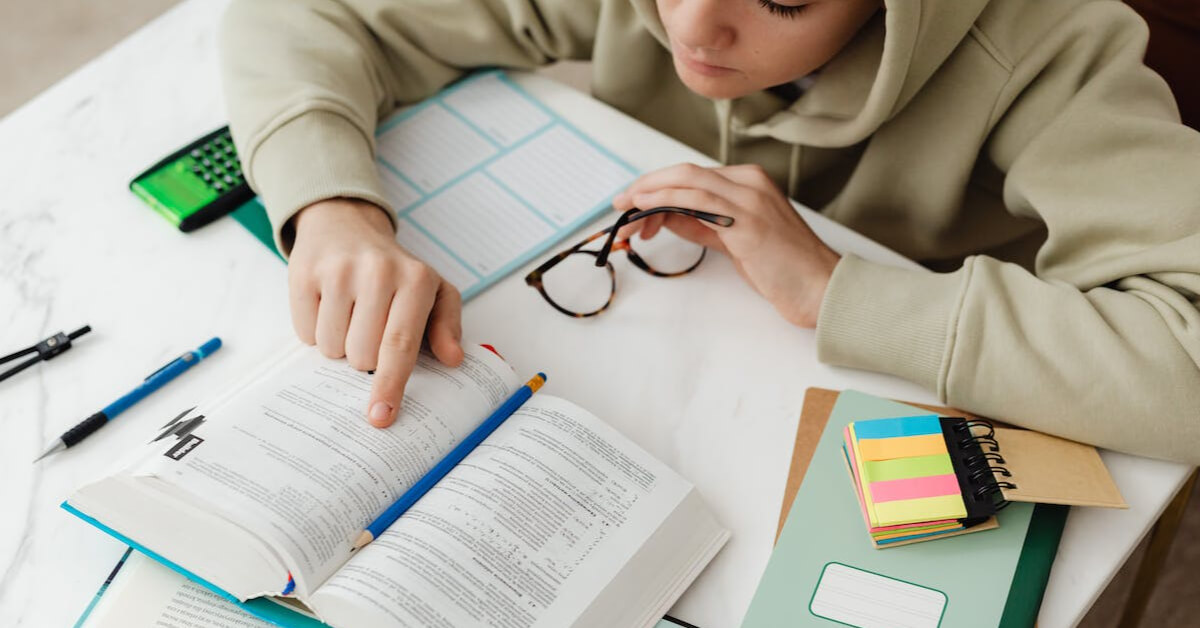Meet our client Jessica, an aspiring international student, who was initially apprehensive about the process of obtaining an Australian student visa.
She had heard stories about the complexities and challenges involved, which left her feeling overwhelmed. However, her experience with Walker Pender Group completely improved her perspective and made the entire process easy.
With Walker Pender Group, our expert immigration lawyers took the time to listen to her questions, concerns and goals, providing reassurance and expert guidance. They explained the intricacies of the student visa application, breaking down each step and clarifying the documentation required.
Are you considering studying in Australia and wondering how difficult it is to obtain a student visa? Fear not! In this article, we’ll walk you through the process of applying for an Australian student visa and provide helpful tips to make the process as smooth as possible, you’ll be well on your way to studying down under.
Australian Student Visa Requirements
The first step in obtaining an Australian student visa is to familiarise yourself with the requirements. The Australian student visa (subclass 500) has several essential needs, including:
- Confirmation of Enrolment (CoE): You must be enrolled in a full-time course registered on the Commonwealth Register of Institutions and courses for Overseas Students (CRICOS) and provide a Confirmation of Enrolment (CoE) before applying for your visa.
- Genuine Temporary Entrant (GTE) requirement: You must demonstrate that you intend to stay in Australia temporarily to study.
- Make welfare arrangements if you are under 18 years: If you’re applying for a student visa and you’re under 18 years old, it’s crucial to have proper welfare arrangements in place during your stay in Australia. However, if you’ll turn 18 before arriving in Australia, you may be exempt from providing certain information.
- Financial requirements: You must show sufficient funds to cover your tuition fees, living expenses, and travel costs. You may need to provide evidence of your English language proficiency, depending on your country of origin and the course you’ll be studying. To see how much money, you need to have for cost of living, your course and travel expenses go to Gather Documents in the ‘Step by Step’.
- Health and character requirements: You must meet specific health and character requirements, including obtaining Overseas Student Health Cover (OSHC) and undergoing a medical examination, if necessary.
Application
Once you understand the visa requirements, it’s time to start preparing your application. If applicable, gather all necessary documents, such as your CoE, financial records, and English language test results. Ensure your passport is valid for your stay in Australia, and obtain any additional documents required for your specific situation, such as a medical examination report or a police clearance certificate.
Need a Lawyer?
Genuine Temporary Entrant (GTE) Requirement Preparation
The GTE requirement is essential to the Australian student visa application process. To satisfy this requirement, you must demonstrate that you intend to stay in Australia temporarily to study. Some tips for preparing for the GTE requirement include:
- You clearly outline your study and career plans in Australia and after returning to your home country.
- You provide evidence of strong ties to your home country, such as family, property, or employment.
- Demonstrate a clear understanding of the course you’ll be studying and how it relates to your future goals.
Submitting Your Application
After gathering all the required documents, you can submit your visa application online through the Australian Department of Home Affairs website. You must create an ImmiAccount, complete the online application form, and upload supporting documents. Double-check all the information you provide and ensure your documents are straightforward to read.
Waiting for the Decision
Once you’ve submitted your application, you’ll need to wait for a decision from the Australian Department of Home Affairs. The processing time for a student visa can vary depending on various factors, such as the time of year and the complexity of your application. On average, you can expect to wait four to six weeks for a decision. During this time, it’s essential to be patient and avoid making effective plans, such as booking flights or accommodation, until your visa is approved.
Duration of Student Visa
The length of your visa will depend on how long your course of study is. Your visa will typically be valid for three years if you’re enrolled in a three-year degree program. It’s important to note that this duration includes any breaks or holidays in your course. So, if your course has a summer break, your visa will still cover that period, allowing you to stay in Australia.
Understanding Post-Study Work Visa:
To understand how long the student visa is for Australia? Once you complete your studies in Australia, you may have the opportunity to stay longer and gain work experience through a post-study work visa. This visa is designed to allow you to work in Australia after graduation and apply the knowledge and skills you acquired during your studies.
For those who have completed a Bachelor’s or Master’s degree, the post-study work visa can be granted for up to two years. This means you can work full-time and gain valuable professional experience related to your field of study in Australia. It’s an excellent opportunity to develop your skills further and enhance your career prospects.
If you have completed a Doctoral degree, such as a PhD, you may be eligible for a post-study work visa for up to four years. This extended duration allows you to engage in advanced research, collaborate with experts in your field, and make significant contributions to your academic discipline.
Also read: Can I Work in Australia with a Student Visa?
Denied Student Visa
The process of obtaining an Australian student visa may seem challenging, here are some of the reasons a student visa has been denied:
Incomplete or Inaccurate Application
One of the most common reasons for a student visa denial is submitting an incomplete or inaccurate application.
This can include missing documents, incorrect information, or failure to provide the necessary evidence to support your application.
To avoid this issue, double-check your application and ensure that you’ve included all the required documents and information.
Be thorough and accurate when completing your application, and don’t hesitate to seek advice if you’re unsure about any aspect of the process. For more info read here
Insufficient Financial Resources
Another common reason for student visa denials is the inability to demonstrate sufficient financial resources to cover your tuition fees, living expenses, and travel costs while studying abroad.
To avoid this issue, ensure you clearly understand the financial requirements for your chosen destination and gather the necessary documents to prove your financial capacity. This may include bank statements, scholarship letters, or financial support letters from a sponsor.
Failure to Meet English Language Proficiency Requirements
For many countries, including Australia, the United States, and the United Kingdom, international students must demonstrate their English language proficiency as part of the visa application process.
If you fail to meet the required English language proficiency level or do not provide the necessary test results, your student visa application may be denied.
To avoid this issue, research the English language requirements for your chosen destination and ensure that you have the necessary test results or exemptions before applying for your visa.
Failure to Satisfy the Genuine Temporary Entrant (GTE) Requirement
In some countries, such as Australia, international students must satisfy the Genuine Temporary Entrant (GTE) requirement to obtain a student visa.
This means demonstrating that you genuinely intend to stay in the country temporarily for the purpose of studying.
If you fail to satisfy this requirement, your student visa application may be denied.
To avoid this issue, be prepared to provide evidence of your study and career plans, as well as strong ties to your home country, such as family, property, or employment.
Health and Character Concerns
Some countries require international students to meet specific health and character requirements as part of the visa application process.
This may include undergoing a medical examination or providing a police clearance certificate.
If you fail to meet these requirements or provide the necessary documentation, your student visa application may be denied.
To avoid this issue, research the health and character requirements for your chosen destination and ensure that you have the necessary documents and examinations completed before applying for your visa.
Choosing the Wrong Visa Category
Can a Student Visa Be Denied? Sometimes, student visa applications are denied because the applicant has chosen the wrong visa category or subclass.
Each country has specific visa categories for different types of students and educational programs.
To avoid this issue, research the visa categories available for your chosen destination and ensure that you apply for the correct one based on your course of study and educational institution.
Missing Application Deadlines
Can a Student Visa Be Denied? Missing application deadlines is another reason why student visa applications can be denied.
Each country has specific deadlines for submitting visa applications, and failing to submit your application on time can result in a denial.
To avoid this issue, familiarize yourself with the application deadlines for your chosen destination and create a timeline to ensure that you submit your application well before the deadline.
Inadequate Interview Preparation
Can a Student Visa Be Denied? In some cases, student visa applicants may be required to attend an interview as part of the application process.
If you fail to adequately prepare for the interview or provide unsatisfactory answers to the interviewer’s questions, your student visa application may be denied. To avoid this issue, research common interview questions and practice your responses.
Be prepared to discuss your study plans, career goals, and reasons for choosing your specific course and educational institution.
Factors to Stop You from Getting a Student Visa
Here are some key factors that can potentially stop you from obtaining a student visa. Understanding these factors and taking appropriate measures will increase your chances of securing a student visa and pursuing your educational dreams abroad.
1. Lack of Clarity in Study Plans
One factor that can lead to a student visa denial is a lack of clarity in your study plans. Immigration authorities want to ensure that you have a clear understanding of the program you want to pursue and how it aligns with your educational and career goals.
To overcome this challenge, take time to research and develop a well-defined study plan. Explain why you chose a specific course, how it relates to your previous education or work experience, and how it will contribute to your future goals. Include details about the curriculum, faculty, and any practical training opportunities. By presenting a well-thought-out study plan, you demonstrate your commitment and increase your chances of a successful student visa application.
2. Lack of Academic Eligibility
Each country has specific requirements for educational qualifications needed to study in their institutions. If you don’t meet these requirements, your visa application may be denied. It’s important to research and understand the academic prerequisites set by your chosen destination.
Ensure you meet the minimum academic standards, such as completing the required level of education or obtaining specific grades or scores. If you fall short, consider alternative pathways, such as bridging programs, to meet the eligibility criteria and improve your chances of obtaining a student visa.
3. Insufficient Justification
Inadequate justification for pursuing studies in a particular country or institution can also lead to a visa denial. Immigration authorities want to see valid reasons for choosing their country and institution for your education. Failing to provide a convincing explanation in your statement of purpose or during interviews can result in a visa refusal. To overcome this challenge, thoroughly research the country’s education system, the institution’s reputation, the program quality, and opportunities available to international students. Highlight how studying there aligns with your goals and emphasize its contribution to your personal and professional growth.
4. Inadequate Preparation for the Visa Interview
For some countries, a student visa interview is a crucial part of the application process. Insufficient preparation for this interview can jeopardise your chances of obtaining a visa. The interview is an opportunity to demonstrate your genuine intentions, address any concerns, and prove your eligibility.
To prepare effectively, familiarise yourself with common interview questions, practice articulating your answers, and gather all necessary documents. Research the country’s culture, education system, and visa regulations to show your commitment and readiness. By being confident, knowledgeable, and organised during the interview, you can increase your chances of success.
5. Failure to Demonstrate Strong Ties to Your Home Country
A failure to demonstrate strong ties to your home country. Immigration authorities want to ensure that you have compelling reasons to return home after completing your studies. If you cannot prove sufficient ties, your visa application may be denied due to concerns about overstaying or not fulfilling the purpose of a temporary stay.
To overcome this challenge, gather evidence that demonstrates your strong connections to your home country. This can include documents like property ownership or rental agreements, employment contracts, or letters of support from family members or employers. By providing substantial proof of your ties, you can reassure the authorities of your intention to return home and increase your chances of a successful student visa application.
Conclusion to ‘Is It Hard to Get an Australian Student Visa?’
Obtaining an Australian student visa may seem daunting, but it’s entirely achievable with the proper preparation and understanding of the requirements. By familiarizing yourself with the visa requirements, preparing your application carefully, and following the tips in this article, you’ll be well on your way to studying in Australia. Good luck on your educational journey!
Seeking assistance with your Australian student visa? Walker Pender Group is here to help. Contact our knowledgeable team for expert guidance and support throughout the application process. Let us simplify the complexities and ensure a smooth journey towards your dream of studying in Australia. Reach out to us today to get started.



